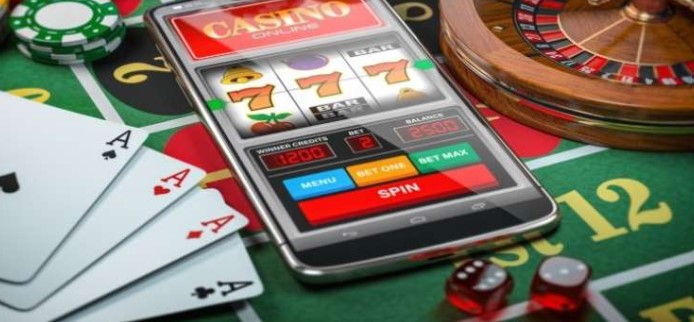
Within the dynamic world of casinos, in which the air pulses with excitement and the clattering of chips fills the space, the role of a dealer is both crucial and captivating. Every day, these skilled experts step into a realm where luck and tactics intertwine, leading players through the ups and downs of their chosen casino games. From table games like 21 and poker to the revolving wheels of roulette, dealers facilitate the gameplay while ensuring that each game runs smoothly and honestly.
As the day breaks on another bustling day, a casino dealer gets ready to dive in this dynamic environment. Their responsibilities extend beyond merely dealing the cards or turning a wheel; they are also performers, customer service representatives, and keepers of the game regulations. Each workday brings new challenges and experiences, making every day distinct in the life of a casino dealer. This insider look will examine the day-to-day operations of a casino dealer, showcasing the expertise and insights that make this profession both thrilling and fulfilling.
The Role of a Gambling Game Dealer
A casino table croupier is at the core of the gaming experience, orchestrating the flow of the game while ensuring that players are engaged and enjoying themselves. Their primary responsibility is to manage the game, which involves distributing cards, spinning the wheel, or managing the chips, depending on the game being played. Croupiers must have a deep understanding of the rules and guidelines governing each type of game, while also upholding a friendly and approachable demeanor to improve the gambling atmosphere.
In addition to managing the play, croupiers must also keep a close watch on the players and the environment around the table. This includes watching for any indications of cheating, making sure that everyone is following the guidelines, and addressing any disputes that may arise among players. Strong communication skills are vital, as croupiers often provide explanations about the game’s mechanics and give assistance to those who may be new to gambling games.
Furthermore, a dealer’s role extends beyond just the technical aspects of the game. They play a key part in creating an enjoyable experience for the players. This necessitates establishing a rapport with patrons, being sensitive to their needs, and often injecting an aspect of fun into the play. It’s this mix of talent, vigilance, and people skills that makes the position of a gambling game croupier both challenging and fulfilling in the dynamic world of gambling games. BK8
Daily Responsibilities and Challenges
One of the key responsibilities of a dealer in a casino is to oversee the various games provided at their table, making sure a smooth and pleasant experience for players. Dealers must be adept at dealing cards, handling chips, and maintaining the continuity of the game. This necessitates a deep understanding of the rules of each game, from blackjack to roulette, and the ability to answer players’ questions while keeping the game progressing. Attention to detail is crucial, as dealers must monitor bets, disburse winnings correctly, and watch for any cheating or discrepancies at the table.
In addition to supervising the game per se, dealers face challenges such as managing difficult players. The casino environment can be tense, particularly during intense games, and a dealer must remain composed and maintain professionalism at all times. They need strong interpersonal skills to handle interactions with players who may be frustrated about losses or dissatisfied with the game’s speed. Navigating these situations delicately is important in creating a positive atmosphere on the casino floor.
Another major responsibility is upholding the honesty of the game. Dealers must be vigilant and attentive, watching for any signs of player cooperation or cheating among players. This involves not only a solid knowledge of the games but also an awareness of human behavior. They must also follow the casino’s regulations and procedures, participating in regular training sessions to stay informed on rules and protocols. Balancing these responsibilities while providing excellent customer service is what makes the role both difficult and rewarding for a dealer in a casino.
Attributes and Qualities for Achievement
A proficient casino game dealer must have excellent communication skills. This includes merely the ability to explicitly explain game rules and procedures to gamblers but also the capacity to interact with them in a approachable and professional manner. Fostering rapport with customers can enhance the gaming experience and encourage repeat visits to the casino. Proficient communication enables dealers to manage tables seamlessly while ensuring that players feel appreciated.
Furthermore, solid mathematical skills are essential for a dealer. Quick calculations are often required to follow bets, payouts, and game outcomes in the moment. A dealer’s ability to perform these numerical tasks accurately and swiftly promotes to the overall efficiency of the game. This skill helps in maintaining the flow of play and in minimizing disputes or misunderstandings with players, which is crucial in a fast-paced casino environment.
Lastly, an ideal casino game dealer should show integrity and professionalism at all times. Trust is a crucial component of the gaming experience, and players must feel assured that the games are conducted fairly and transparently. A dealer’s dedication to upholding high ethical standards fosters a welcoming atmosphere at the table and enhances the casino’s reputation. Being reliable in behavior ensures that dealers leave a memorable impression on guests, which can lead to a faithful customer base.